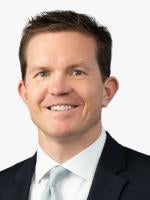“The Department remains committed to using every available federal tool—including criminal, civil, and administrative actions—to combat and prevent COVID-19 related fraud. We will continue to hold accountable those who seek to exploit the pandemic for personal gain, to protect vulnerable populations, and to safeguard the integrity of taxpayer-funded programs”
US Attorney General Merrick Garland – March 10, 2022, Remarks
The Biden Administration, US Department of Justice (DOJ), US Department of Health and Human Services Office of Inspector General (HHS-OIG), and other federal agencies have prioritized prosecuting COVID-19-related fraud since the pandemic began. Although the United States appears to be finally emerging from the pandemic, the government’s pandemic-related enforcement actions are here to stay for the foreseeable future. DOJ has made clear that the government’s COVID-19 enforcement efforts will accelerate, with a more significant focus on complex healthcare fraud cases and civil actions under the False Claims Act (FCA). As the federal government continues to devote additional resources towards its pandemic-related enforcement efforts, healthcare companies, hospital systems and providers should prepare for increased scrutiny.
Additional Resources Devoted to COVID-19 Fraud Enforcement Efforts
DOJ and other federal agencies have already devoted an unprecedented amount of resources to investigating and prosecuting pandemic-related fraud cases. These extensive efforts have led to immediate results. To date, DOJ has brought pandemic-related criminal charges against more than 1,000 individuals with the total alleged fraud losses exceeding $1 billion, and has seized more than $1.2 billion in fraudulently obtained relief funds.
DOJ’s pandemic-enforcement efforts show no sign of slowing down anytime soon. Less than a year after US Attorney General (AG) Merrick Garland established the COVID-19 Fraud Enforcement Task Force, the Biden administration announced that DOJ would appoint a chief prosecutor to expand on the Task Force’s “already robust efforts,” to focus on “most egregious forms of pandemic fraud” and to target particularly complex fraud schemes.
On March 10, 2022, DOJ announced that Kevin Chambers has been appointed as DOJ’s director for COVID-19 fraud enforcement. During his introductory remarks, Chambers said that DOJ would be “redoubling [its] efforts to identify pandemic fraud, to charge and prosecute those individuals responsible for it and whenever possible, to recover funds stolen from the American people.” He also indicated that DOJ would use “new tools” it has developed since the start of the pandemic to investigate such fraud.
In a March 2, 2022, speech before the American Bar Association’s Annual National Institute on White Collar Crime, AG Garland also announced that the Biden Administration will seek an additional $36.5 million in the 2022 budget for DOJ to “bolster efforts to combat pandemic-related fraud.” As evidence of this point, DOJ plans to hire 120 new prosecutors and 900 new Federal Bureau of Investigation agents who will focus on white-collar crime.
DOJ and HHS-OIG to Increasingly Focus on FCA Cases
For the past two years, officials from DOJ and HHS-OIG have identified civil and criminal healthcare fraud relating to COVID-19 as a high priority. As the effects of the pandemic subside, COVID-19-related civil enforcement actions targeting healthcare providers and healthcare companies seem set to increase.
During remarks at the Federal Bar Association’s annual Qui Tam Conference in February 2022, Gregory Demske, chief counsel to the inspector general for HHS-OIG, emphasized that COVID-19 remains a key enforcement priority. Demske indicated that HHS-OIG is focused on the use of COVID-19 to bill for medically unnecessary services, and fraud in connection with HHS’s Provider Relief Fund (PRF) and Uninsured Relief Fund. Demske also confirmed that HHS-OIG remains intensely focused on fraud in connection with telehealth services, the use of which increased exponentially during the pandemic. And, in March 2022, AG Garland reiterated that DOJ will use “every available federal tool—including criminal, civil, and administrative actions—to combat and prevent COVID-19 related fraud.”
The majority of pandemic-related healthcare enforcement actions to date have been criminal prosecutions involving truly blatant instances of fraud and abuse. Going forward, civil and administrative actions likely will be used to pursue cases that turn on lower mens rea requirements or involve more complex regulatory issues. These civil actions will include qui tam actions filed by whistleblowers, as well as FCA cases initiated directly by the DOJ.
In 2021, DOJ recovered more than $5 billion in connection with FCA cases involving the healthcare industry. Given the unprecedented amount of government funds expended to combat the COVID-19 pandemic, DOJ and HHS-OIG will undoubtedly rely on the FCA to maximize the government’s financial recovery. DOJ has already reached FCA settlements in several Paycheck Protection Program cases. It is only a matter of time before we see similar FCA investigations, complaints and settlements focused on relief funding to healthcare providers.
Pandemic-Related Healthcare Priorities
HHS’s PRF
The PRF was created as part of the Coronavirus Aid, Relief and Economic Security (CARES) Act to provide direct payments to “eligible health care providers for health care-related expenses [and] lost revenues that are attributable to coronavirus.” More than $140 billion has been disbursed to hospitals and healthcare providers under the PRF, which is administered by the Health Resources & Services Administration (HRSA).
Payments under the PRF are subject to specific terms and conditions. To retain PRF disbursements, providers must attest to “ongoing compliance” with these requirements and acknowledge that their “full compliance with all Terms and Conditions is material to the Secretary’s decision to disburse funds.” Notwithstanding ongoing concerns and confusion regarding the PRF program requirements, any noncompliance with the terms and conditions could result in criminal, civil and administrative enforcement actions. As recently as March 3, 2022, AG Garland identified fraud in connection with the PRF as a key DOJ enforcement priority.
To date, the Healthcare Fraud Unit of DOJ’s Criminal Division has already brought criminal charges against nine individuals for fraud relating to the PRF. These criminal cases, however, have almost exclusively focused on egregious allegations of fraud and abuses, such as misappropriating PRF disbursements and using the money for personal expenses. For example, in September 2021, DOJ charged five individuals with using PRF payments to gamble at Las Vegas casinos and purchase luxury cars.
DOJ, however, has long indicated that the FCA will also play a “significant role” in DOJ’s PRF enforcement efforts. It is now just a matter of time before such civil investigations and settlements emerge.
HRSA’s stated oversight plan includes post-payment analysis and review to determine whether HHS distributed PRF payments to eligible providers in the correct amounts; audits to assess whether recipients used the funds in accordance with laws, guidance, and terms and conditions; and the recovery of overpayments and unused or improperly used payments. Among other things, HRSA and HHS-OIG likely will evaluate ownership changes, double counting reimbursed expenses and losses, and compliance with the balanced billing requirements.
PRF oversight and enforcement actions have been delayed partly because of program complexities and extended reporting timelines. For example, the first report from PRF recipients on use of funds was not due until the end of 2021. Depending on the date funds were received, PRF recipients may have no reporting obligations through 2023. Entities that expended more than $750,000 in federal awards, including PRF payments, also must obtain an independent audit examining their financial statements; internal controls; and compliance with applicable statutes, regulations and program requirements. These independent audits of PRF payments must be submitted to the Federal Audit Clearinghouse, for nonprofit organizations, or the HRSA Division of Financial Integrity, for for-profit “commercial” organizations. Recipients also may be subject to separate audits by HHS, HHS-OIG or the Pandemic Response Accountability Committee to review copies of records and cost documentation and to ensure compliance with the applicable terms and conditions.
Finally, DOJ and HHS-OIG have increasingly relied on sophisticated data analytics to drive their healthcare enforcement efforts generally. Now that the first round of reports containing specific PRF data certifications are available to HRSA and HHS-OIG, we expect to see the use of such analytics, in conjunction with all the other available information, in connection with PRF enforcement.
Telehealth
Telehealth use expanded exponentially during the pandemic. A March 2022 HHS-OIG report showed that during the first year of the pandemic, more than 28 million Medicare beneficiaries (approximately 43% of all Medicare beneficiaries) used telehealth services—a “dramatic increase from the prior year” in which only 341,000 beneficiaries used telehealth. This increase was largely the result of HHS temporarily waiving statutory and regulatory requirements related to telehealth to allow Medicare beneficiaries to obtain expanded telehealth services.
Telehealth has been at the forefront of DOJ’s healthcare enforcement efforts for years now. For example, DOJ’s 2021 nationwide healthcare enforcement action included criminal charges against dozens of individuals for telehealth fraud schemes involving more than $1.1 billion in alleged loses. The majority of these telehealth enforcement actions to date have involved the use of telehealth to engage in traditional fraud healthcare schemes, such as illegal kickbacks and billing for medically unnecessary services and equipment.
DOJ, however, has increasingly pursued criminal enforcement actions directly related to the telehealth waivers HHS issued in response to the pandemic. For example, in November 2021, a defendant was sentenced to 82 months in prison for participating in a $73 million telehealth fraud scheme. The defendant owned laboratories that provided genetic testing and had paid his coconspirators to arrange for telehealth providers to order medically unnecessary genetic tests. The telehealth providers were not actually treating the beneficiaries, did not use the test results and often never even conducted the telemedicine consultation. Although this was primarily a traditional Anti-Kickback Statute/medical necessity case, DOJ also charged the defendant with using the COVID-19-related telehealth waivers to submit more than $1 million in false claims for sham telemedicine visits.
Similar criminal prosecutions and civil actions relating to the expanded telehealth waivers and sham telehealth encounters can be expected in the future. DOJ and HHS-OIG will likely focus on telehealth visits that resulted in claims for services and equipment with particularly high reimbursement rates, such as genetic testing and durable medical equipment. DOJ and HHS-OIG likely will use data analytics to focus on instances in which telehealth services were billed by providers with whom the beneficiary did not previously have a relationship.
Improper Billing Schemes
DOJ has also pursued criminal cases involving traditional healthcare fraud schemes that sought to take advantage of the COVID-19 pandemic. For example, in May 2021, DOJ announced criminal charges against numerous individuals who were improperly bundling COVID-19 tests with other more expensive laboratory tests, such as genetic testing, allergy testing and respiratory pathogen panel testing. DOJ has likewise pursued criminal cases in which defendants improperly used COVID-19 “emergency override” billing codes to circumvent preauthorization requirements and bill Medicare for expensive medications and treatments. Any improper billing schemes that relate to the pandemic will continue to be a focus of criminal and civil enforcement efforts going forward.
Key Takeaways and Recommendations
DOJ, HHS-OIG and other federal agencies remain focused on pursuing healthcare fraud relating to the COVID-19 pandemic. The best way for hospitals, health systems and other healthcare companies and providers to prepare for this increased enforcement activity and scrutiny is to ensure that they have a robust compliance program in place.
There is no one-size-fits-all approach to compliance, but companies can take several proactive and practical steps to minimize their enforcement risk:
-
Monitor federal and state regulatory and statutory changes. The rules, regulations and guidance relating to the COVID-19 pandemic, including for the PRF and expanded telehealth waivers, have repeatedly changed over the past two years and continue to evolve. Monitoring such changes will not only help prevent enforcement actions, but a company’s reasonable and good faith efforts to interpret and follow such rules and regulations can be a powerful defense should an investigation arise, as discussed in connection with the Allergan case, above. Further to that point, where regulatory requirements and associated guidance is ambiguous, a good documentary record of the basis for your entity’s interpretation of the rules is critical.
-
Incorporate data analytics into your compliance program. DOJ and HHS-OIG continue to rely heavily on sophisticated data analytics, including artificial intelligence, to identify and prosecute fraud. In March 2022, AG Garland emphasized DOJ’s use of “big data” to identify payment anomalies that are indicative of fraud. Healthcare companies already have access to vast amounts of data that they can and should use to proactively identify errors, monitor risk areas and address any potential misconduct.
-
Adapt your compliance program and internal controls, as appropriate, to support PRF compliance, reports and audits. Recipients should continue to practice good compliance hygiene and maintain contemporaneous records regarding the receipt and spending of federal funds. Doing so may involve implementing additional systems to track spending, recovery and relief to avoid overlapping use of funds among relief programs, or consulting with grant accounting and compliance advisors to augment existing infrastructure. Recipients also should periodically review policies, procedures and controls, particularly following major updates to program requirements and interpretations.
-
Ensure the accuracy of required PRF reports, certifications and submissions. Particularly in light of ongoing political pressure, HRSA and HHS-OIG likely will conduct extensive oversight of the PRF to identify potential errors, overpayments and improper use of funds. Recipients should carefully review guidance and instructions to avoid inadvertent errors and misstatements on all submissions. Recipients may consider revisiting prior submissions underlying significant disbursements to identify interpretative issues or compliance concerns that warrant additional supporting documentation or disclosure.
-
Carefully consider the implications before entering into arrangements with other parties. The biggest risk to healthcare companies often comes from those with whom they do business. Compliance programs should focus heavily on reducing the risk of entanglement with bad actors.
-
Be diligent in the design and oversight of marketing strategies. Healthcare companies and providers should regularly review their marketing strategies to ensure total transparency and compliance (both historic and prospective) with applicable state and federal anti-kickback statutes. Companies should confirm that patients are reached through appropriate channels. Although issues relating to COVID-19 may be the impetus for a government investigation, violations of the Anti-Kickback Statute frequently result in larger recoveries for the government.
-
Proactively examine coding and billing practices. Providers should immediately review and revisit their coding and billing practices to determine if their practices involved bundling COVID-19 testing with other claims, the use emergency override billing codes or billing for other COVID-19 related services with high reimbursement rates. There is a strong likelihood that the DOJ will review the claims data for any providers with statistically significant use of these billing and coding practices, particularly when the providers are located in geographical areas where the DOJ’s Healthcare Fraud Strike Force and HHS-OIG’s Medicare Fraud Strike Force operate.






 />i
/>i

